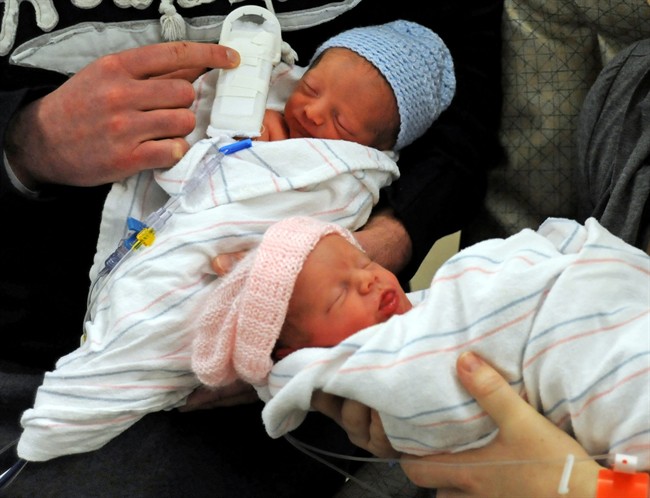Expecting twins? You probably don’t need to schedule a cesarean section. Most moms can safely give birth without surgery, a Canadian-led study finds.

It’s the latest research to question the need for C-sections, which are done in one-third of all births in the United States and three-fourths of those involving twins. Studies increasingly are challenging long-held beliefs about cesareans, such as that women who had one need to deliver future babies the same way.
Now doctors are looking hard at C-sections for twin births, which are on the rise because of infertility treatments. Twins have more risk for birth complications and some studies suggest C-sections lower that risk, but this had not been put to a rigorous test.

Get weekly health news
Dr. Jon Barrett of Sunnybrook Health Sciences Center in Toronto, led a study in 25 countries of 2,800 women pregnant with twins. All of the first of the twins to be delivered were in good position for birth (most doctors still recommend a C-section if the first twin is in feet-first or breech position).
Half of the moms were scheduled to have C-sections and the rest, vaginal births. About 40 per cent of the latter group wound up having C-sections, and 10 per cent of those scheduled to have cesareans ended up giving birth vaginally.
About 2 per cent of newborns died or had a serious problem, but the manner of birth made no difference. Nor did it affect the rate of complications in moms.
The Canadian Institutes of Health Research paid for the study. Results are in Thursday’s New England Journal of Medicine.
“These results do not indicate that all sets of twins should be delivered vaginally,” but that planning to do so is a reasonable choice if the doctor is experienced in twin births and knows when a C-section becomes necessary, Dr. Michael Greene of Massachusetts General Hospital wrote in a commentary in the journal.
—
Online:
Study: http://www.nejm.org/doi/full/10.1056/NEJMoa1214939
—
Follow Marilynn Marchione on Twitter at http://twitter.com/MMarchioneAP

Comments